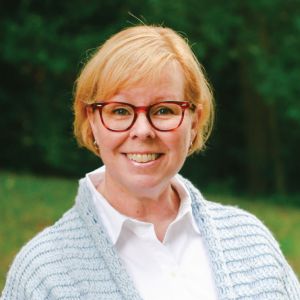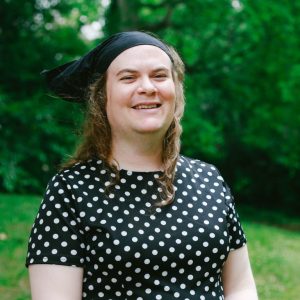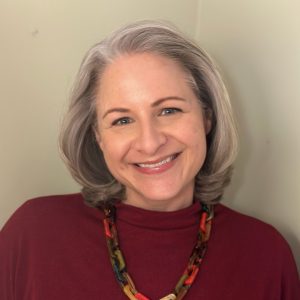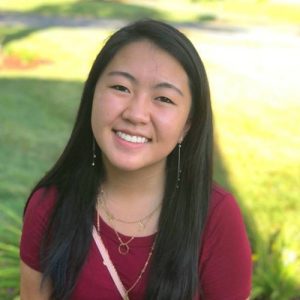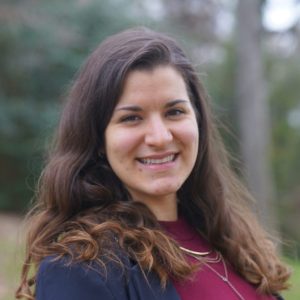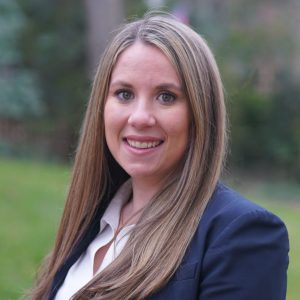Office of Student Affairs
The Office of Student Affairs provides student-centered services and experiences from recruitment through commencement. The Office fosters student growth through coaching, mentoring, career development, professional development, co-curricular engagement, and experiential education programs and activities. This support beyond the classroom aims to maximize both student growth and leadership development by offering grounded and intentional services, opportunities, and experiences that engage students by fostering self-reflection, personalized learning, and holistic development.
ESOP Resources for Student Support
The Eshelman Care Referral (modeled after the UNC-Chapel Hill Care Team) provides focused assistance and support to students through a centralized structure and method for outreach, referrals, and follow-up. Careful discretion is used when collecting pertinent information for developing appropriate interventions and responses and when collaborating with school units and university resources. The central goal of Eshelman Care Referrals is to address immediate concern(s) and ultimately support our students’ academic and personal success and wellness. Eshelman Care Referrals are categorized in four different areas:
- Academics
- Health/Well-Being
- Professionalism
- Discrimination/Harassment
Faculty, staff, preceptors, and students are encouraged to submit Eshelman Care Referrals as they develop concerns for students. Referrals are received by trained and educated Student Affairs administrators, who review referrals and manage student follow-up to best situate students for sustainable success. Specifically, referrals are responded to by:
Sarah Pankracij – Referrals for students on immersions within the PharmD program
Colleen Wernoski – Referrals for students in the didactic portion of the PharmD program on the Chapel Hill campus
William Taylor, Referrals for students in the PhD and MS programs
Karen Hughes, Asheville Campus, Referrals for students in the didactic portion of the PharmD program on the Asheville campus
Ilona Owens, Director of the Office of Student Affairs
Every effort is made to maintain confidentiality when referrals are submitted. Please note, however, that staff are required to share any information regarding discrimination or harassment based on a protected status (including reports of sexual assault, sexual violence, interpersonal violence, and stalking) with the UNC Equal Opportunity and Compliance Office (EOC). The only other exception to this confidentiality standard is if there is an immediate threat of harm to the individual student or others in our community.
Note: This form will be seen within 24 hours on weekdays and within 48 hours on the weekend. For an emergency, please contact the authorities – dial 911.
Embedded therapists
CAPS providers are embedded within various campus schools and programs.
Embedded therapists can focus on and work with the students in those programs, allowing them to deeply understand the programs themselves, stressors specific to each school, and challenges faced by students within them. The embedded therapists use program-specific knowledge and understanding to serve their students better in treatment as well as offer proactive groups and outreach to best meet broad student needs. Treatments are generally approached as brief therapy with community referrals available as needed. Embedded therapist services are confidential.
At the Eshelman School of Pharmacy, students can initiate services by emailing the embedded therapist, Ardith Burkes, directly at aburkes@unc.edu.
Students are encouraged to limit email communications to a request for services. Ms. Burkes will provide a secure link for gathering additional information before meeting with students.
Wellness Resources The ESOP Wellness Committee has created a site providing resources around the “8 Dimensions of Wellness”, which together impact one’s overall wellness. Please visit the Wellness Resources site for additional information to learn about the 8 dimensions as well as resources to help positively transform your wellness in each respective domain.
Career Services The Career Services office in the School of Pharmacy offers the following opportunities and services for all PharmD students to engage with career exploration and develop their own career pathway in their area of choosing throughout their four years as a student pharmacist. Services are open to all students and can help students in with any career interest.
- Support in preparation for applications to internship, residency, fellowship, and direct hire opportunities
- Resources and support for interview preparation
- Canvas resource site (accessible with ONYEN)
- 1-1 Appointments
- Annual Events and Workshops
- CV Drive-Thru
- Mock Interview Week
- Financial Planning programs for professional and post-graduate planning
- And more!
Tutoring Free tutoring services are available for Pharm.D. students through the Office of Student Affairs and the Rho Chi Honor Society. It is highly recommended that students seek help from their course TA and Course Director if they have a grade lower than a B in any class.
Peer Mentor Program The Peer Mentoring Program promotes the successful transition of new students to the Pharm.D. experience. Peer Mentors are paired with new Pharm.D. students to add an additional layer of support and advocacy throughout the first year of study. Peer Mentors provide guidance on all things related to the Doctor of Pharmacy program while also serving as a consistent point of contact for questions and referral.
PharmD Advising Program The PharmD Advising Program supports students in being as successful as they aim to be as they grow into their pharmacy career. Each PharmD student is provided a faculty coach with the breadth and depth of knowledge and the experiences and insight to coach students based on the student’s professional interest(s). By engaging with your faculty coach, our hope is that each student will:
- Intentionally engage in unique opportunities within the co-curricular space to maximize growth personally, academically and professionally.
- Make meaning of their co-curricular experiences through reflection to grow professionally.
- Understand the interconnectedness between didactic, experiential and co-curricular experiences.
- Consider and explore the professional advice and opportunities shared by the faculty coach.
- Develop career goals and monitor progress in order to achieve a fulfilling and exciting career path.
- Embrace life-long learning.
Financial Hardship Funds The Eshelman School of Pharmacy Financial Hardship Fund typically considers financial assistance to Eshelman students who have been denied funds from the University Student Emergency Fund. The University Student Emergency Fund aids students who have been significantly affected by an unexpected catastrophic event. The fund supports students who are left with financial difficulties that can affect both their personal and academic lives.
Through the Financial Hardship Fund, the UNC Eshelman School of Pharmacy assists students, when possible, by providing financial support when they need assistance with emergency expenses surrounding situations such as accidents, illness, death of a family member, fire damage or need for temporary housing.
This funding does not have to be repaid. Per UNC policy, payments will be disbursed to the
student’s account by the University Cashier’s Office. Funds will be applied to any outstanding
charges or balances on the student account before a refund is generated.
Application Process
Students who have been denied funding by the University Student Emergency Fund are required to submit documentation of the denial, along with an application for ESOP Financial Hardship Funds to the Eshelman Office of Student Affairs.
The Office of Student Affairs reviews submitted financial hardship applications and determines eligibility and the appropriate funding amount. Funds are distributed within an average range of $250 to $500 if funds are available. Staff will review applications requesting in excess of $500 for unusual circumstances of emergency financial need. Applicants may be required to meet with a staff member in the Office of Student Affairs to discuss their application.
Complete an application to be considered for our Eshelman School of Pharmacy Financial Hardship Funds.
Types of Expenses Covered
The Eshelman School of Pharmacy Financial Hardship Fund can cover several types of expenses related to an unexpected catastrophic event. The following list offers examples of expenses that may be covered pending approval:
• Rent, utilities, and other essential household expenses
• Medications and other costs related to unexpected medical emergencies
• Books and other essential academic expenses
• Safety needs (i.e. changing a lock)
• Replacement of personal belongings due to fire, theft, or natural disaster
• Travel costs related to a death or illness in the immediate family
Expenses Not Covered
The following list offers examples of expenses NOT covered:
• Tuition, fees, health insurance, and study abroad costs
• Non-essential utilities, household, or furniture costs not related to damage or theft
• Parking tickets
• Costs for entertainment, recreation, non-emergency travel or other non-essential expenses
Eligibility Requirements
• Applicants must have a financial hardship resulting from an emergency, accident, or
other unplanned event.
• Applicants must be currently matriculated in a degree or certificate program in the Eshelman School of Pharmacy.
• All other resources must have been considered and are insufficient, unavailable, or not
available in a timely manner.
Students requesting Financial Hardship Funds are asked to contact the Sr. Director of Student Affairs, Ilona Owens, at pharmacystudentservices@unc.edu
More information
To inquire about these supplemental funds, please contact the Office of Student Affairs.
osa@unc.edu
919-966-9429
University Support Services for Students:
- Chapel Hill Campus Health appointments can be made by phone 919-966-2281, or a request for an appointment can be made on the Healthy Heels Portal. All should call 919-966-2281 prior to coming to Campus Health. Student ID and an insurance card are needed at the time of service.
- Asheville Campus Health appointments can be made by phone 828-251-6520. Student ID and an insurance card are needed at the time of service.
- Chapel Hill Counseling and Psychological Services (CAPS) is a 24/7 service addressing the mental health needs of students. Students can visit Campus Health after calling (919-966-3658) and scheduling an appointment.
- Asheville Campus Counseling addresses the mental health needs of students. Students can make appointments by phone (828-251-6520). Student ID is required at the time of service.
- Student Wellness Center at UNCCH seeks to enhance the individual and collective health of our campus and the wider community through a wide range of programs, services and resources.
- The Learning Center at UNCCH offers students strategies and resources to succeed academically at Carolina.
Additional Resources for ESOP PharmD Students National Support Services for Students: Crisis Text Line: Text HOME to 741741 to connect with a Crisis Counselor National Suicide Hotline: 1-800-273-8255 .
Co-Curricular Program
Our Co-Curricular program is designed to complement the Pharm.D. curriculum and provide value-added student experiences through four distinct pathways:
- Career Pathway: This pathway is focused on the intersection of the student pharmacist and the future. Personal interests, abilities and values form the cornerstone of a productive, satisfying career. Students are expected to grow their knowledge of self, grow an understanding of the full breadth and depth of personalized career matches, develop skills/abilities/dispositions that will situate them for career success, and develop a transition plan from study to practice.
- Horizon Pathway: This pathway focuses on learning more about others – particularly those who are not like you or who may view the world we live in through a different lens. Students are expected to develop a global mindset toward pharmacy practice, grow cross-cultural awareness/responsiveness related to the profession, invest in service of underserved/rural populations, and embrace inclusive mindsets regarding the multiple identities of those with whom we work and serve.
- Professional Pathway: This pathway focuses on investment in oneself. Through this pathway, students are expected to grow an awareness of self; develop knowledge/skills to maintain well-being and healthy perspectives; hone holistic leadership capabilities; engage with other health professions students in meaningful ways; and connect with national professional organizations that match their career and professional interests.
- Patient Pathway: This pathway focuses on the ultimate goal of the Pharm.D. experience – the patient. Students are expected to engage with any number of patient populations through creative advocacy, service, outreach or education. This spans the areas of direct patient care, drug development, industry, and managed care, among other areas of practice.
Registrar
The Office of Student Affairs staffs an in-school registrar and curriculum manager who oversees course registration, course scheduling, student records, verification of enrollment and degrees, residency-for-tuition-purposes, curriculum management, and academic progressions. See below to order transcripts and enrollment or degree verifications. Additional Resources:
- Enrollment Verifications
- Proof of Awarded Degree
- Order a transcript
- Licensure Documents to be completed & signed by School/Dean – please email osa@unc.edu
- Academic Calendar and Weekly Course Schedules
- Residency for Tuition Purposes
- Tuition questions or email cashier@unc.edu
- Financial aid questions email ssa_graduate@unc.edu
View the Financial Aid Document for details on current financial aid options. For help with budgeting, please view the Budgeting Worksheet for assistance.
For more information on financial aid, please watch the comprehensive video below.
Questions?
Contact the Office of Student Affairs
By e-mail:
By Phone/Fax:
Ph: 919-966-9429
Fax: 919-445-1425
M-F, 8:00 a.m.-5:00 p.m.
By visiting:
109 Beard Hall Campus Box 7566 Chapel Hill, NC 27599





